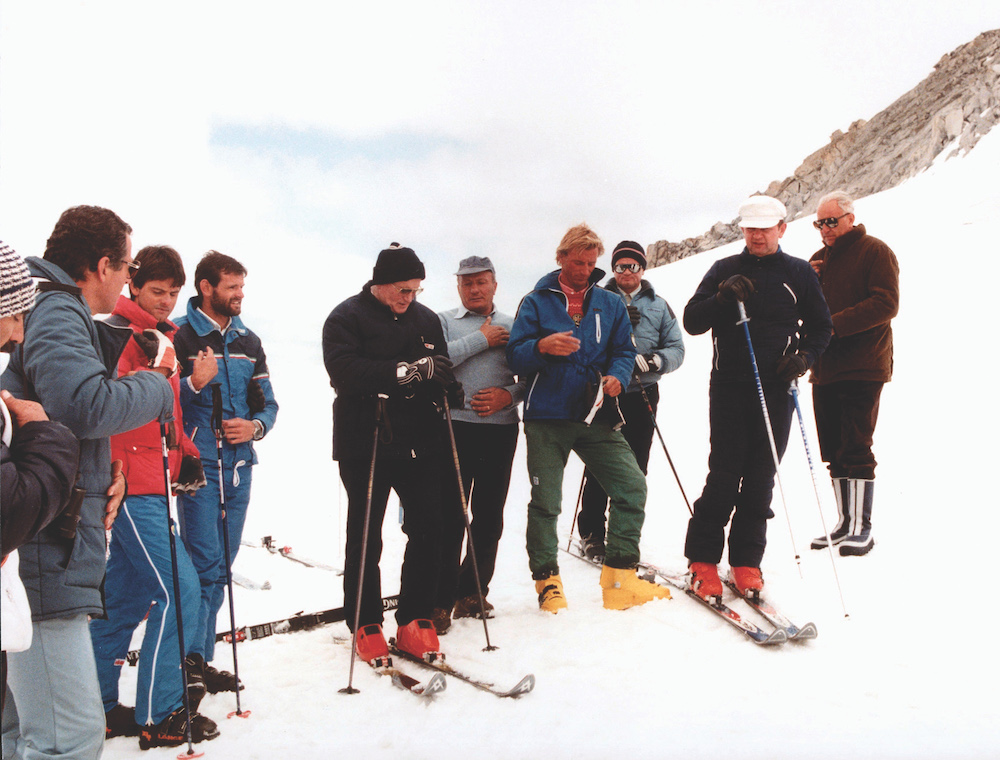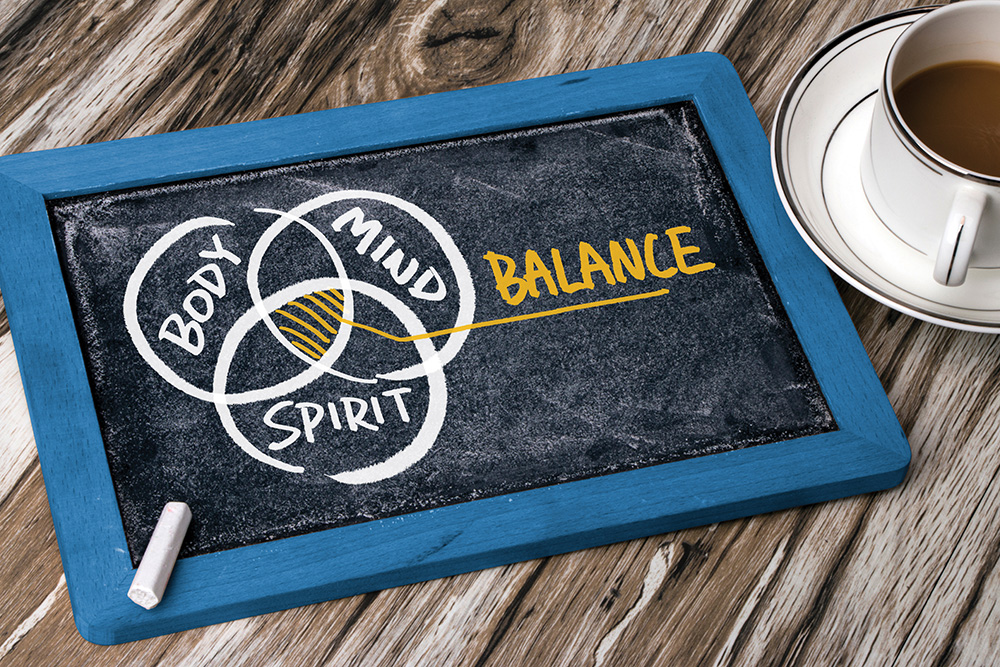Three Simple Ways Priests Can Glorify God through Their Bodies
Tips to keep our bodies healthy and strong
Kevin Vost Comments Off on Three Simple Ways Priests Can Glorify God through Their Bodies
When the priest speaks in persona Christi the words of consecration, “This is my Body,” it is not only Christ who is speaking but the priest also. At every Mass, I am reminded that I am called to offer my own body as an offering to God. It is only right and just that I give God my best, which is a healthy body, mind and soul. We are all reminded to give God our best when the priest says, “Pray, brothers and sisters, that my sacrifice and yours [meum ac vestrum sacrificium] may be acceptable to God, the almighty Father.” — Father Mark C. Bristol, Lieutenant in the United States Navy Chaplain Corps
We read in the holy words of the Old Testament: “I would rather have bodily health than any gold, / and contentment of spirit than pearls” (Sir 30:15). Later, St. Paul made clear that our bodies are the very temples of the Holy Spirit (cf. 1 Cor 3:16-17; 6:19-20). St. Thomas Aquinas would elaborate in his great Summa Theologica that Christ’s command to love God with all that we are and to love your neighbor as yourself means that we are commanded to love our bodies as well as our souls.
The Catholic Church is quite clear on the nature of human beings and the value of the human body. We can all attest from personal experience that we are beings of both matter and spirit, “ensouled bodies.” The Catechism of the Catholic Church elaborates that “the unity of soul and body is so profound that one has to consider the soul to be the ‘form’ or the body … spirit and matter, in man, are not two natures united, but rather their union forms a single nature” (No. 365). After Christ comes again, we can hope and pray to spend eternity in heaven, body and soul, with magnificent glorified bodies.
Sadly, in our modern time of so much material prosperity — yet, so much sickness in mind, body and spirit — Catholic priests and laity would do well to heed some simple principles that can immediately help us reclaim healthy, sound and robust bodily temples while we are still wayfarers on earth. Then we might heed St. Paul’s call to “glorify God in your body” (1 Cor 6:20) in the bodies we have right now. Let us examine candidates for the top three simple principles.
Eat Real Food!
Enriched wheat flour, water, sugar, yeast, salt, soybean and/or canola oil, defatted soy flour, wheat gluten, calcium, propionate, sodium stearoyl-2-lactylate, sorbic acid, vegetable monoglycerides are the ingredient list of one of America’s top 10 best-selling breads.
But check out God’s mouth-watering recipe for bread in Ezekiel 4:9: “Then take wheat and barley, beans and lentils, millet and spelt; put them into a single pot and make them into bread.” Yes, it just takes wheat, barley, beans, lentils, millet, spelt, and, I suppose, water. When you compare it to the ingredient list of any of our best-selling mass-produced bread, you will have to check cupboards for the calcium propionate, sodium stearoyl-2-lactylate, sorbic acid and vegetable monoglycerides, along with other ingredients more easily found in a chemistry lab than sprouting forth from the soil.
Keeping that comparison in mind, consider how obesity continues to grow in our nation and around the world. If we combine the category of the non-obese who are nevertheless in the “overweight” range, a full 73.4% of American adults, according to the Centers for Disease Control and Prevention, are carrying too much weight.
According to these numbers obesity has tripled in the United States, even since I was born (1961), to the point that now only one person in four is at a healthy body weight. And sadly, children have not been spared. While in the early 1960s less than 5% (1 out of 20) of U.S. children and adolescents were obese, by 2017 19.3% (1 out of 5) were classified as obese. As for the related condition of diabetes mellitus, in 1958 less than 1% (0.93%) of Americans were diagnosed with diabetes, while in 2015 the number had risen to 7.4 percent — almost an eightfold increase.
Surely there are many causal factors, but it appears the most significant change in recent decades has been our overconsumption of overly processed foods that bear little likeness to foods as God made them. A report in the Journal of the American Medical Association showed that by 2018 more than 67% of the food American children and adolescents eat in a day was of the ultra-processed variety. Such foods are notorious for added sugars and factory-produced seed oils, along with a number of suspect lab-created chemicals that can leave us perpetually undernourished, hungry and tired.
A simple way to improve our health through diet is to be sure to feed ourselves the simple “real foods” that our great-grandparents ate, foods as some say come “from a farm, forest or field, not a factory,” or “foods without a label or barcode.” If I might add to the catchphrase list, “foods invented by God, not man.” These can usually be found, by the way, along the outer walls of our grocery stores, since they tend to be preserved by cool temperatures, rather than added chemicals.

Use Your Muscles!
“It isn’t that exercise makes all my other problems magically disappear, but it offers me breathing space so that I can engage my personal issues constructively and with positivity,” says Father Michael Rennier, a Catholic priest (former Anglican pastor) in the Archdiocese of St. Louis. “Knowing that I’m a Catholic priest and also have young children, people will ask me how I make the time every day to exercise. My response is: ‘How could I not?’ That time to exercise is precious. Without it, the rest of my day would be far less orderly, far less productive, and far less happy. I’ve come to see exercise as an act of love. My exercise isn’t a means to physical power or health; it’s a way of engaging in voluntary suffering to reconcile soul and body.”
When I was involved in research and assessment of Alzheimer’s disease in the 1990s, while there were no guarantees regarding how to prevent it, study after study suggested that one of the best maxims to retain our cognitive powers was “use it or lose it!” People who practiced both rigorous mental and physical activity through their lifetimes were most likely to remain mentally and physically fit and disease-free.
A simple recommendation that relatively healthy people can implement today (with their physician’s approval) is to start using their muscles, just about every day. For some, this might include endurance exercise like running, biking, swimming or the use of aerobic exercise machines.
Father Rennier, bearing the responsibilities of a pastor, as well as fatherhood, manages his time to include regular runs in his routine. For others, this might include simply walking at a comfortable pace. Indeed, at times, the normal physical activities of living from mowing the lawn to washing the car, walking the dog to vacuuming the floors, can help us counteract the ill effect of letting our muscles just sit there all day long.
Also, if health permits, I would recommend at least one strength-building workout per week of one-half hour or less, consisting of free weights, machines, cables or bodyweight exercises, since maintenance of muscle mass becomes increasingly important as we grow older, and a little dose of the right strength-training medicine can go a long way.
St. Thomas Aquinas pointed out centuries ago that virtues are perfections of the various powers God has given us, and there are parallels between what we might call virtues of the soul and virtues of the body. According to Thomas, “Virtue, inasmuch as it is a suitable disposition of the soul, is like health and beauty, which are suitable dispositions of the body” (Summa Theologica). He also said, “But if a man uses exercise, food, and drink in moderation, he will become physically strong and his health will be improved and preserved. It is the same with the virtues of the soul — for instance, fortitude, temperance and the other virtues.”
Pope Pius XII, an athletic pope who installed a gymnasium in the Vatican, would declare in the 1940s while addressing a group of athletes, “The Church, without any doubt whatever, approves of physical culture, if it be in proper proportion.” He then fleshed out that proper proportion in care of the body means it:
– Does not lead to worship of the body.
– Strengthens and energizes the body rather than draining it.
– Provides refreshment for the spirit.
– Does not lead to spiritual sloth or crudeness.
– Provides “new excitements” for study and work, and does not disturb the peace and sanctity of the home.
Most of us need not and cannot become like physical Samsons, but even the priest whose bodily temple is a little over-filled or badly in need of repair might, under a doctor’s supervision, inspire parishioners to become better stewards of their bodily temples by making disciplined attempts to renovate his own.

‘Eat’ Good Books!?!
Ezekiel recounts, “Son of man, he said to me, feed your stomach and fill your belly with this scroll I am giving you. I ate it, and it was as sweet as honey in my mouth” (3:3).
That Old Testament verse may confuse and surprise, but St. Jerome, in commonetary on Ezekiel, explained: “Eating the book is the starting point of reading and of basic history. When, by diligent meditation, we store away the book of the Lord in our memorial treasury, our belly is filled spiritually and our guts are satisfied.
When God directed Ezekiel to eat a holy scroll, he found it “as sweet as honey.” In St. Jerome’s Commentary on the Book of Ezekiel, he said that when we chew on and digest the words of God our belly is filled spiritually and our gut is satisfied.
KEVIN VOST (1961–2023) obtained his doctorate in clinical psychology (Psy.D.) from Adler University in Chicago, with internship and dissertation at the SIU School of Medicine Alzheimer Center’s Memory and Aging Clinic. He taught psychology at schools including the University of Illinois at Springfield and Aquinas College in Nashville, Tennessee, and spent 32 years in the adjudication of mental and physical disability claims for the Social Security Administration. Kevin authored over two dozen books. Kevin and his wife, Kathy, were married for 39 years, and had two sons and five grandchildren.
………………………………………………………………………………………………………………………………………………
Catholic Approaches to Health, Faith and Fitness
My last suggestion for Catholics to start improving their health today is to “chew on and digest,” so to speak, Catholic and scientific books that address spiritual, mental and physical health.
Here are recommended books by Catholic authors in this area. Some Catholic priests and their parishioners may find them as sweet as honey (and without all the fructose). Further, they may show us how and inspire us to glorify God with our bodies through keeping healthy and holy our bodily temples of the Holy Spirit.
– “The Rosary Workout” (Bezalel Books) by Peggy Bowes
– “A Catholic Perspective: Physical Exercise and Sports” (Ignatius Press) by Robert Feeney
– “The Sunshine Principle: A Radically Simple Guide to Natural Catholic Healing” (Intinction Press,) by Melody Lyons
– “Running for a Higher Purpose: 8 Steps to Spiritual and Physical Fitness” (Ave Maria Press) by Bishop Thomas John Paprocki
– “You Are That Temple: A Catholic Guide to Health and Holiness” (Sophia Institute Press) by Kevin Vost, Psy.D.
– “Fit for Eternal Life: A Christian Approach to Working Out, Eating Right, and Building the Virtues of Fitness in Your Soul” (Sophia Institute Press) by Kevin Vost, Psy.D.
– “Tending the Temple: 365 Days of Spiritual and Physical Devotions” (Bezalel Books) by Kevin Vost, Psy.D., Peggy Bowes and Shane Kapler
– “Ten Commandments of Lifting Weights” (Bezalel) by Jared Zimmerer
………………………………………………………………………………………………………………………………………………





